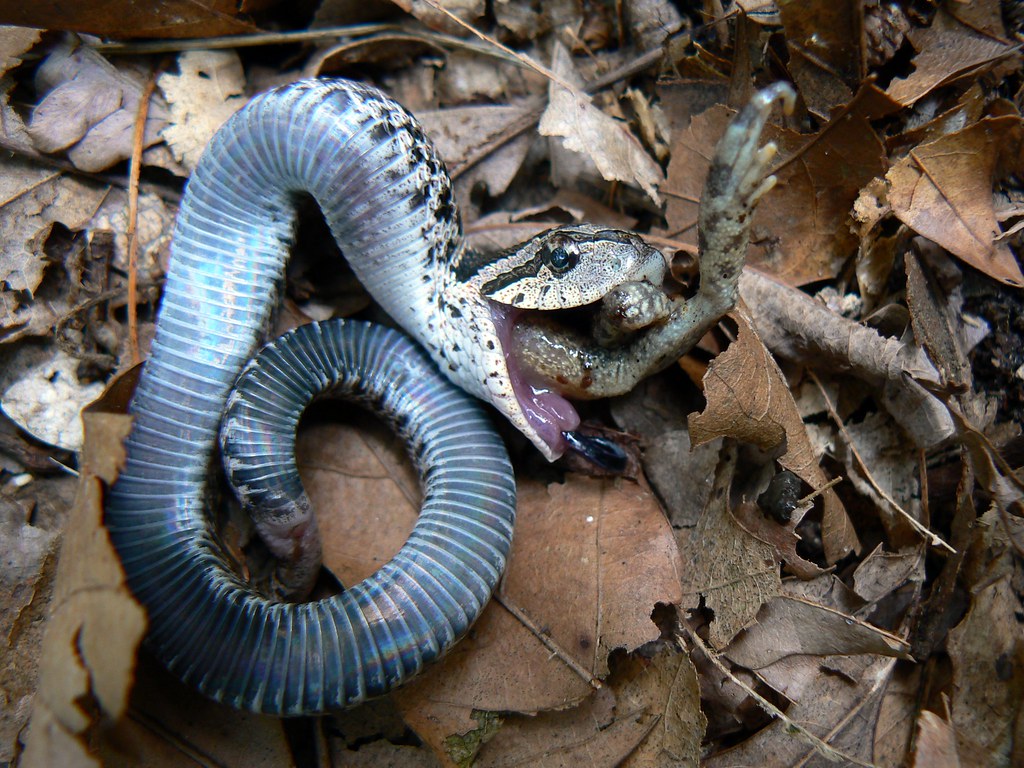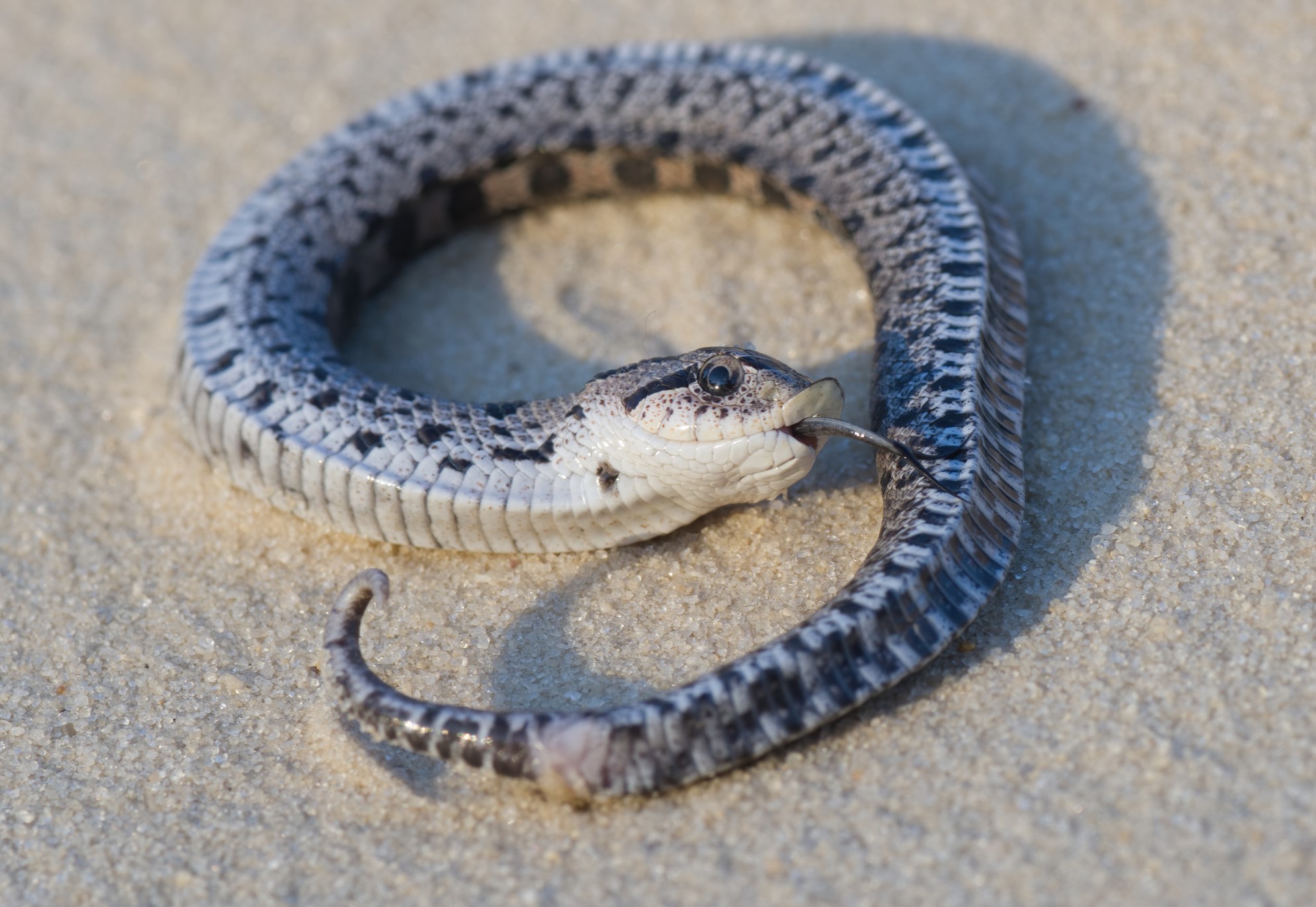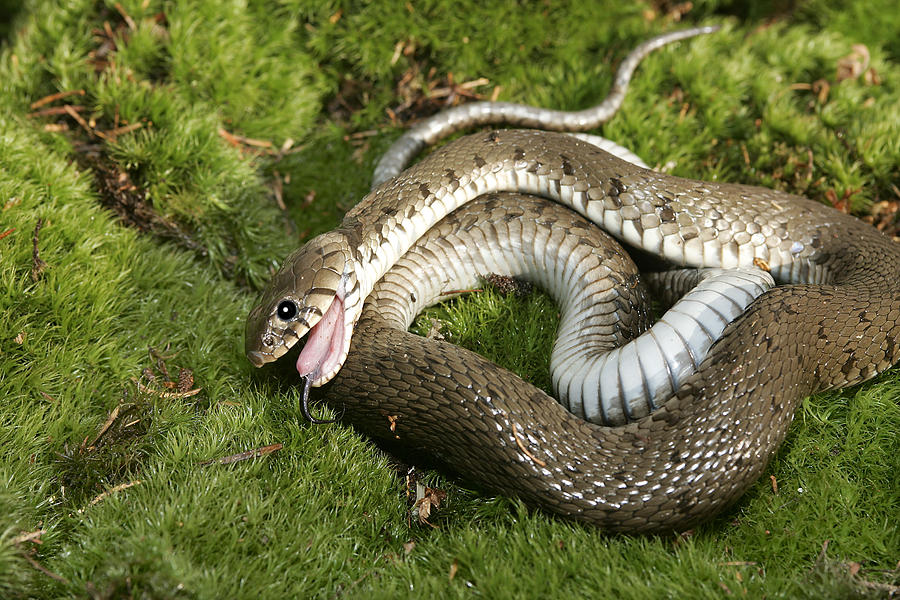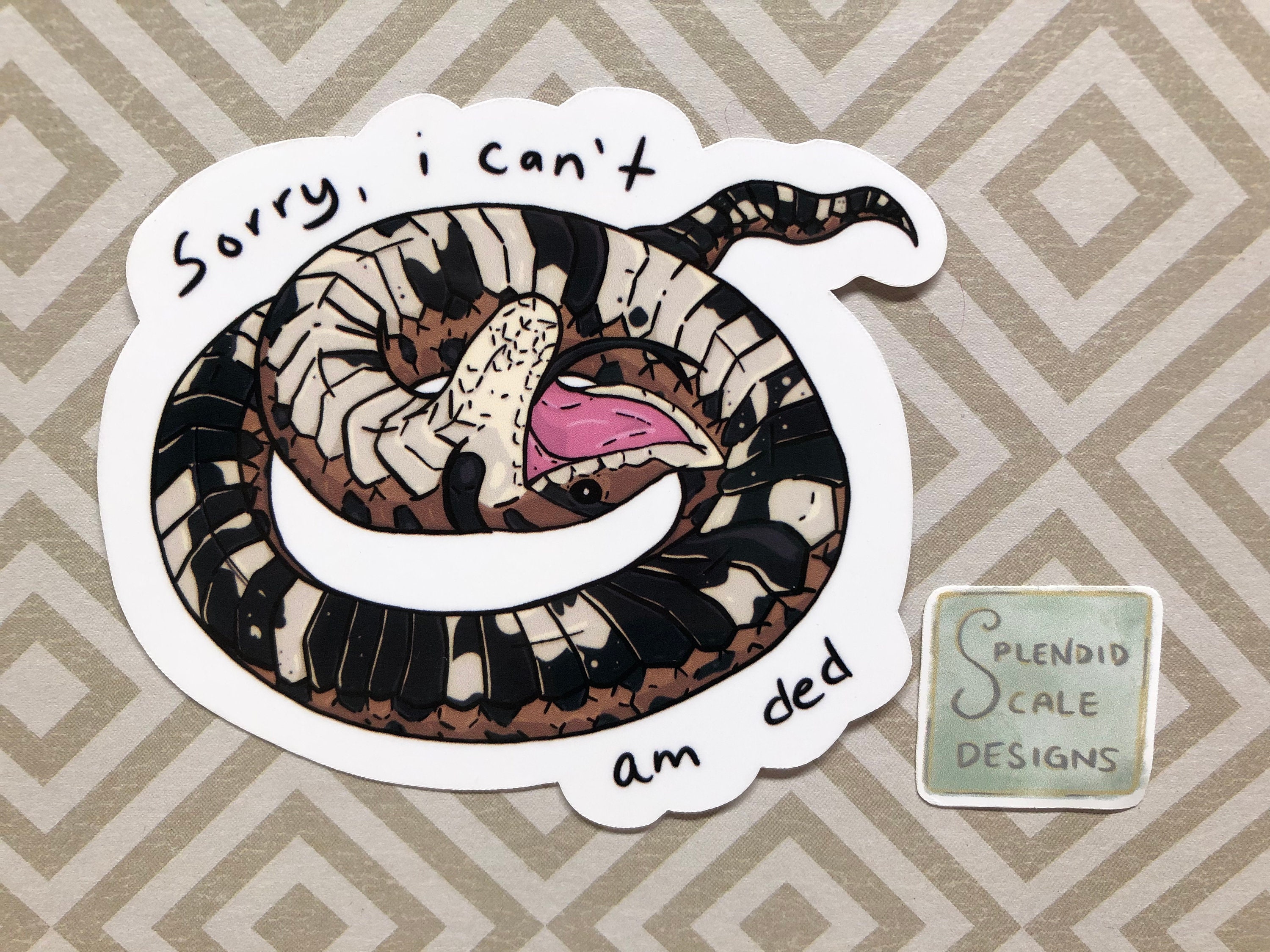Eastern Hog-Nosed Snake Missouri Department of Conservation
Por um escritor misterioso
Descrição
The eastern hog-nosed snake is a medium-sized snake with a heavy body and a pronounced upturned snout. Compared to other snakes of similar size, hog-nosed snakes have large eyes and a short tail. The color of this species is highly variable. Its ground color is gray, tan, yellow, brown, olive, or orange. Individuals can have a series of 20–30 brown upperside blotches with a smaller light marking between them, or they can be dull colored and lack markings on the back, except near the head. With heavily marked specimens, there are several additional dark markings on the head: a V-shaped marking behind the eyes, plus a dark bar across the head between the eyes, and a diagonal dark bar from each eye to the corners of the mouth. In some part of the species' range, individuals may be jet black on the back. The belly is gray, yellow, or pink, mottled with gray or greenish gray. The underside of the tail is normally lighter than the belly. Even on individuals with no upperside markings, there is always a pair of large dark brown or black blotches behind the head. The scales on the back are keeled, and the anal plate (the last belly scale, which covers the anal opening) is divided. Newly hatched eastern hog-nosed snakes are more colorful than adults, with numerous brown, black, tan, yellow, or orange blotches that can form bands toward the tail. This is the only common species of hog-nosed snake in Missouri. When threatened, an eastern hog-nosed snake will flatten its head and neck, hiss loudly, and even strike; but this is an act and the mouth is closed. Although it can look intimidating, remember that this is a nonvenomous snake. If its threatening bluffs fail to ward off an enemy, the snake may go into convulsions, thrash around, open its mouth, let its tongue hang out, regurgitate any prey animal from its stomach, release feces from its cloaca, roll over on its back, and play dead. You can expose this as a fake death by gently rolling the snake back onto its belly; it will immediately roll over onto its back again. If the intruder moves away, and the hog-nosed snake is left alone, it will eventually slowly roll over onto its belly, cautiously look about, flick its tongue to make sure it is safe, and move away to safety. Similar species: The plains hog-nosed snake (H. nasicus) and dusty hog-nosed snake (H. gloydi) — virtually indistinguishable from each other — both have a sharply upturned snout and black pigment on the underside of the tail. Both are very rare in our state. The plains hog-nosed snake was once known only from loess hill prairies in extreme northwestern Missouri and is probably extirpated. The dusty hog-nosed snake is restricted to sand prairie and savanna areas of southeastern Missouri.

Kansas Herpetofaunal Atlas

There Are Two Snakes You Can't Kill In Missouri

Eastern Hognose Snake (Heterodon platirhinos) · iNaturalist

His name is Ralph! Beetles In The Bush

DNR: Fish & Wildlife: Eastern Hog-nosed Snake

Eastern Hog-Nosed Snake Missouri Department of Conservation

Missouri Dept. of Conservation - STRANGE BUT TRUE: The harmless

Snakes in Missouri contracting fungal disease

Kansas Herpetofaunal Atlas
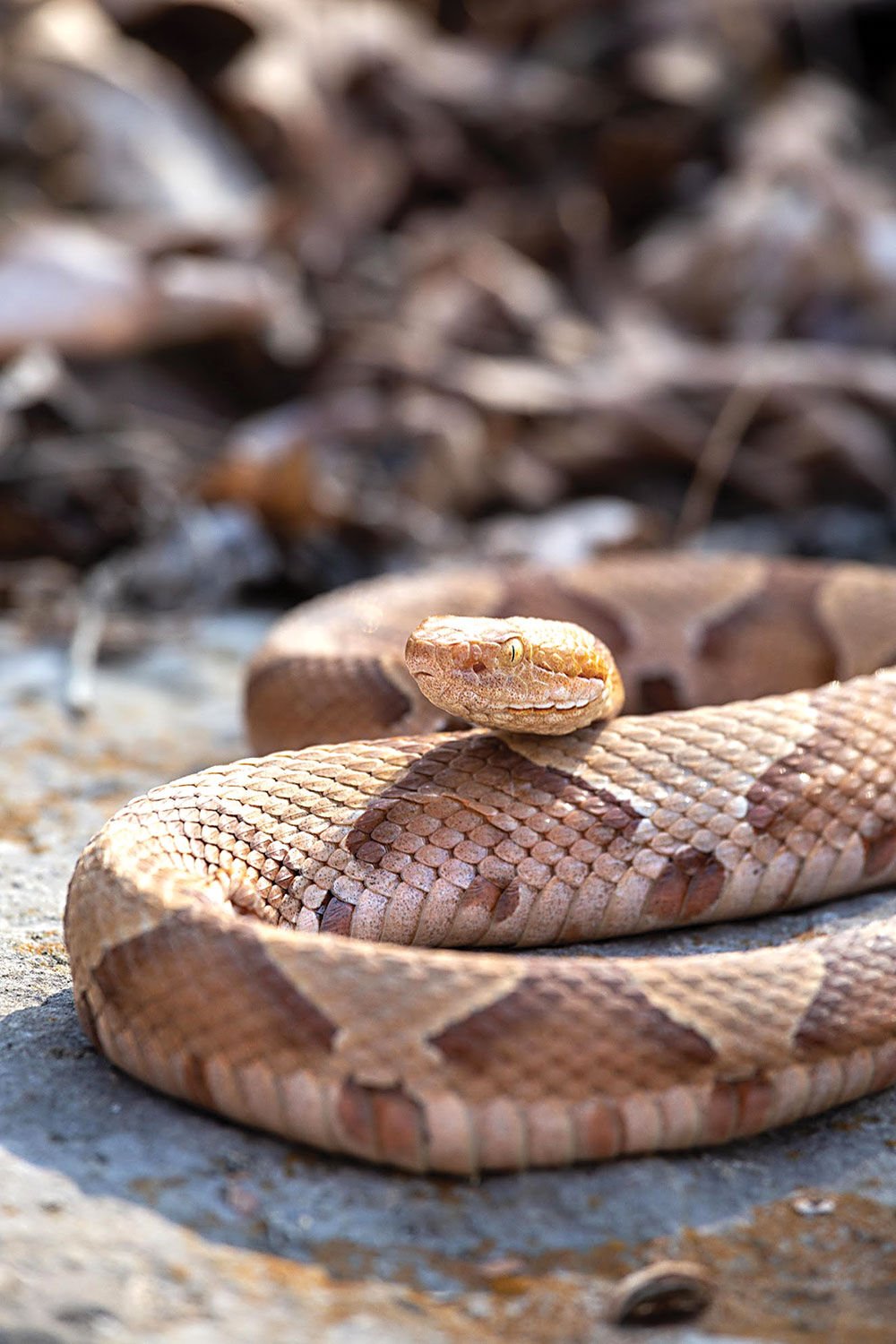
Learning To Live With Snakes
de
por adulto (o preço varia de acordo com o tamanho do grupo)
